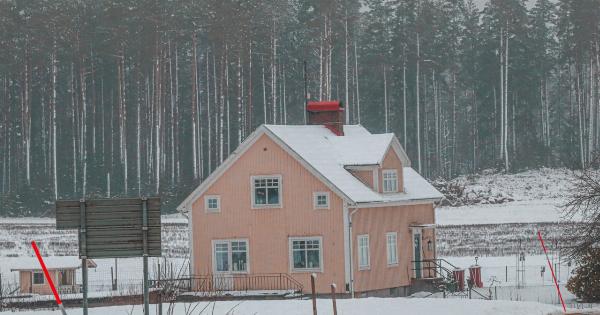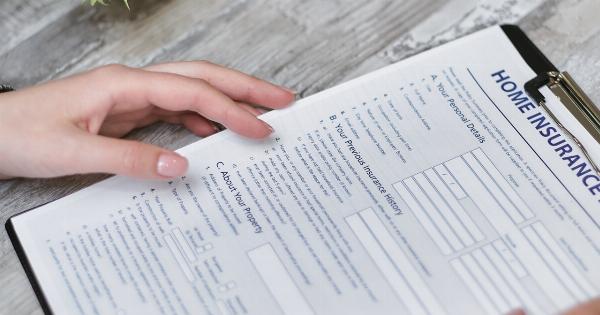When natural disasters strike, they can leave a devastating impact on homes and communities. From hurricanes and earthquakes to floods and wildfires, these events can cause extensive damage and destruction.
In the face of such disasters, having home insurance becomes crucial to protect your property and provide financial support for rebuilding or repairing your home. However, many homeowners are unaware of the importance of insurance coverage until it’s too late.
The importance of home insurance
Home insurance is designed to safeguard your property and personal belongings against unforeseen events. It provides financial protection and peace of mind, especially in the aftermath of a natural disaster.
Without proper insurance coverage, you may end up shouldering the entire burden of rebuilding or repairing your home, which can be overwhelming and financially crippling.
Home insurance typically covers damages caused by fire, lightning, windstorms, hail, explosions, theft, vandalism, and even certain water-related incidents.
However, natural disasters like earthquakes, floods, and hurricanes often require additional coverage, as they may be excluded from standard policies.
Understanding your home insurance policy
To ensure you have adequate protection in the event of a natural disaster, it’s essential to carefully review your home insurance policy. Consider the following factors:.
1. Coverage limits and deductibles
Review the coverage limits stated in your policy. This refers to the maximum amount your insurance provider will pay for different types of damages or losses.
Additionally, check the deductibles – the amount you must pay out of pocket before your coverage kicks in. High deductibles can significantly impact your financial burden in the event of a natural disaster.
2. Additional coverage for natural disasters
Check if your policy includes coverage for natural disasters such as earthquakes, floods, or hurricanes. If not, consider purchasing additional coverage or a separate policy to protect your home from these specific perils.
3. Home replacement cost
Ensure that your policy covers the full replacement cost of your home in case of total loss. Some policies only provide coverage for the actual cash value of your home, which deducts depreciation from the payout.
This could leave you with inadequate funds to rebuild or replace your home.
4. Personal belongings coverage
Review the coverage for your personal belongings, including furniture, appliances, electronics, and other valuables. Be aware of any limitations or exclusions, and consider adding additional coverage if necessary.
5. Loss of use coverage
Loss of use coverage helps cover living expenses if your home becomes uninhabitable due to a natural disaster. This may include temporary accommodation, meals, and relocation costs. Review the terms and limitations of this coverage in your policy.
6. Policy exclusions and limitations
Carefully read through the exclusions and limitations section of your policy. It will outline specific scenarios or circumstances where the insurance coverage may not apply. Make sure you understand these exclusions to avoid any surprises later on.
7. Review and update your policy regularly
Regularly review your policy and make updates as needed. If you have made any significant changes to your home or its contents, such as renovations or purchasing valuable items, notify your insurance provider to ensure adequate coverage.
Tips for dealing with insurance claims after a natural disaster
Dealing with insurance claims can be a complex and time-consuming process, especially during the aftermath of a natural disaster. Here are a few tips to help you navigate the claims process:.
1. Contact your insurance provider
Inform your insurance provider about the damages to your home as soon as possible. Follow their instructions regarding the claims process and document all conversations and correspondence related to your claim.
2. Document the damages
Take photographs or videos of the damages to your home and personal belongings. This visual evidence can help support your claim and ensure a fair settlement.
3. Keep receipts and records
Keep track of all expenses related to temporary repairs, accommodations, and any other costs incurred due to the natural disaster. Retain receipts, invoices, and relevant documents to provide evidence of the expenses you’ve had to bear.
4. Don’t make permanent repairs without approval
Avoid making permanent repairs or changes to your property until your insurance provider has assessed the damages. They may require an inspection or assessment of the damages before approving any repairs.
5. Work with a trusted contractor
When considering repairs or rebuilding, hire a reputable contractor who has experience in dealing with insurance claims. They can help navigate the process and ensure that all necessary repairs are properly documented and performed.
Conclusion
Preparing for natural disasters involves more than just storing emergency supplies and creating an evacuation plan.
It’s crucial to evaluate your home insurance policy and ensure you have adequate coverage for potential damages caused by these events. Being proactive and well-informed about your policy can save you from financial distress and help you rebuild your life and home more quickly after a natural disaster strikes.
























